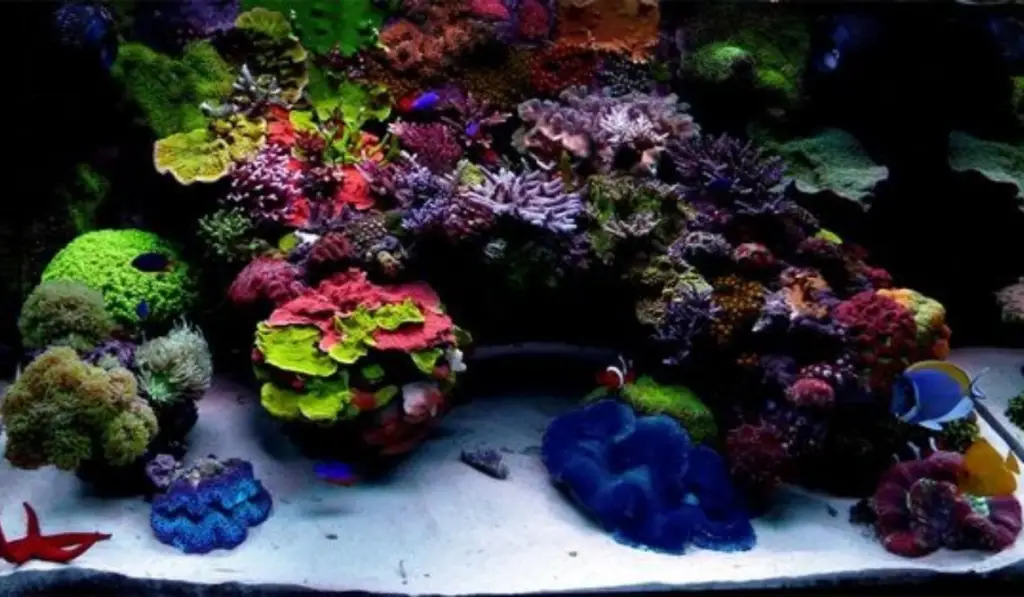What Is A Good Phosphate Level In Reef Tank
If you have a reef tank, you know how important it is to maintain proper water chemistry. One key factor in keeping your tank healthy is managing phosphate levels. But what is a good phosphate level in a reef tank? Let's explore this topic together.
Pain Points Related to a Good Phosphate Level in Reef Tank
High phosphate levels in a reef tank can cause a variety of problems. They can contribute to the growth of undesirable algae, harm coral growth, and lead to poor water quality. On the other hand, too low of a phosphate level can also negatively impact your tank by depriving corals of important nutrients.
Answering the Question
So, what is a good phosphate level for a reef tank? The ideal range for phosphate levels is typically considered to be between 0.03 and 0.1 parts per million (ppm). However, it's important to note that different types of tanks and corals may have slightly different requirements.
Summary of Main Points
Optimizing the phosphate level in your reef tank is an important aspect of maintaining a healthy environment. The ideal range is typically considered to be between 0.03 and 0.1 ppm, but it's important to monitor your tank and make adjustments based on the specific needs of your corals.
Why is a Good Phosphate Level Important?
Personally, I have struggled with maintaining proper phosphate levels in my reef tank. I found that when my phosphate levels were too high, I noticed an increase in unwanted algae growth, and my corals did not seem as vibrant. When I lowered the phosphate levels, I noticed a significant improvement.
Ensuring a good phosphate level in your reef tank is important because it impacts the health and growth of your corals. Phosphates are essential building blocks for the skeletal structures of corals and play a role in photosynthesis. When phosphate levels are too low, corals may become weakened and more prone to disease. When they are too high, they may suffer from inhibited growth and bleaching.
Tips for Maintaining a Good Phosphate Level
To maintain a good phosphate level in your reef tank, it's important to test your water regularly and make adjustments as needed. Some methods for reducing phosphate levels in your tank can include using specialized media, like GFO or activated carbon, doing regular water changes, and controlling feeding and nutrient input. Be sure to research and understand the methods you are using and their potential impact on your tank.
Understanding the Role of Phosphates in Your Reef Tank
Beyond just maintaining a good level of phosphates in your tank, it's important to understand the role they play in the overall health of your reef. Phosphates are not inherently bad, and at some level, they are necessary for the growth and health of corals. It's all about finding the right balance for your specific tank and coral needs.
Seeking Professional Advice
If you are struggling to maintain proper phosphate levels in your reef tank, it may be helpful to seek advice from a professional or experienced hobbyist. They can help you develop a plan to optimize your water chemistry and keep your tank healthy.
Question and Answer
What causes high phosphate levels in a reef tank?
There are several possible causes of high phosphate levels in a reef tank, including overfeeding, poor water quality, and an excess of decaying organic matter.
What are the consequences of having low phosphate levels in a reef tank?
Low phosphate levels can contribute to weakened corals, inhibited growth, and an inability to maintain proper skeletal structures.
How often should I test my reef tank's phosphate levels?
It's generally recommended to test your reef tank's phosphate levels at least once a week, or more frequently if you're making adjustments to your tank's chemistry.
What are some natural ways to reduce phosphate levels in a reef tank?
Some natural ways to reduce phosphate levels in your reef tank can include adding macroalgae like chaetomorpha or using live rock or sand. However, it's important to monitor your tank closely and make adjustments as needed.
Conclusion
Optimizing phosphate levels in your reef tank is an important aspect of maintaining proper water chemistry and promoting the health of your corals. It's important to monitor your tank regularly, seek advice when needed, and take steps to maintain a good balance of nutrients.
Gallery
Home Reef – Rich Ross
Photo Credit by: bing.com /
What Is The Ideal Phosphate Level In A Reef Tank?(Explained)

Photo Credit by: bing.com /
Optimal Phosphate Level? (Mixed Reef) | Page 6 | REEF2REEF Saltwater
Photo Credit by: bing.com / reef phosphate optimal mixed level reef2reef
Reef Tank Calcium Level - Reef Tank Resource

Photo Credit by: bing.com / reef calcium additives
How To Raise Phosphate In Reef Tank? - Beginner Fish Tank

Photo Credit by: bing.com /